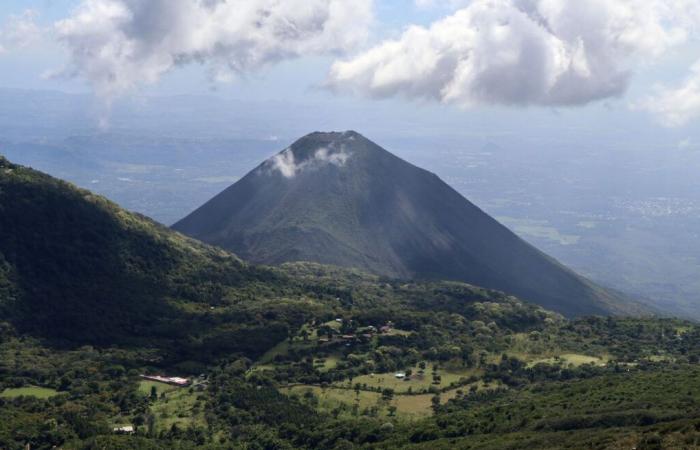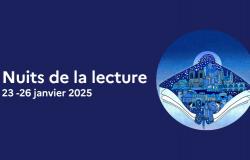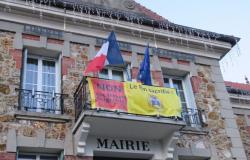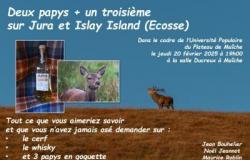This text is part of the special Pleasures notebook
Once too risky to explore, El Salvador has become one of the safest countries in the Americas. It is also one of the most authentic, as it has managed to preserve relative virginity. All the more reason to go now, in case the tide starts to change.
Around 600 CE, the Laguna Caldera volcano erupted, covering its surroundings in a thick layer of ash — including the Mayan village of Joya de Cerén.
Discovered by chance in 1976, the site that is now nicknamed “the Pompeii of America” is nothing like the famous Roman city. But since it was freed from its volcanic protection, “it forms the best known example of the living environment of Mayan farmers,” assures Roberto Caledonio, Salvadoran guide.
Listed on the UNESCO Heritage List, Joya de Cerén is just one of many Mayan sites in El Salvador, and one of the surprising finds that await anyone who arrives in Central America’s smallest country.
Beyond its revitalized historic center, the capital, San Salvador, is increasingly home to the head offices of large companies, such as Google. The country’s roads are the most beautiful in Central America, and it is possible, in the cities, to pay for a pack of gum in bitcoins, a currency recognized in the same way as the American dollar. Better: we now move around without being paralyzed by fear in this country which was among the most violent in the world not so long ago.
An extraordinary president
Coming to power in 2019, the current president, Nayib Bukele, took great measures to clean up by sending to jail anyone who resembled an armed gang member. From now on, he shouts to anyone who will listen that his country is the safest in the Americas.
Despite his particular way of dealing with the notion of the rule of law, the one who describes himself as “the most cool of the world” receives the support of a majority of the population. “The country has really changed a lot, people are no longer afraid to go out and they love their president, even if there have been arbitrary arrests,” notes Roberto Cañas, a Quebecer of Salvadoran origin who fled the country during the civil war in 1981, and who stayed there last November.
If tourists already came to El Salvador at the time when it was inaccessible, they are more present than ever in this reassured country, where relieved Salvadorans flash smiles at the first comer even if they are not always rolling in gold. It must be said that El Salvador has come a long way, after 12 years of civil war fueled by the United States, several major earthquakes (in 2001, 2014, 2019, etc.) and endless years of (surviving) living under the yoke of the maras , these terrifying gangs of thugs.
Surfing and volcanoes
Smallest Central American country (21,000 km2a little less than Israel), neighboring Honduras and Guatemala and widely open to the Pacific, El Salvador has been frequented for ages by surfers coming to ride tight rollers, notably in Surf City, a tourist enclave developed by the State in La Libertad.
These days, the long wooden promenade flanked by bars and restaurants in El Tunco is more bustling than ever, along the obsidian-colored beaches. The more foreigners try the meaning of fiesta and the Salvadoran welcome, the more they want to drag on, even if the bill – although reasonable – is more expensive than expected.
-Covered by nearly 200 volcanoes, some of which are active, El Salvador presents a resplendent natural relief, with impressive outdoor potential. Already, the ascent of the Santa Ana volcano, topped by a milky turquoise crater lake, is damn breathtaking. From the summit, at 2,381 meters, we embrace another crater lake, that of Coatepeque, as well as the almost perfect cone of the Izalco volcano, this “lighthouse of the Pacific” whose lava flows guided navigators until the 1950s.
Where splendors surface
Moreover, the slopes of several Salvadoran volcanoes are lined with coffee plantations, which make El Salvador one of the most famous producers of black nectar, as we discover when visiting the El Carmen estate, in Concepción de Ataco. In spring, the flowers of the coffee trees cover the volcanoes with white petals, which makes the aptly named Flower Route eminently pleasant to travel along.
No matter the time of year, this bucolic panoramic route also allows you to pass through some charming villages. In Ataco, the facades are covered with naive and dapper frescoes; In Apaneca and Salcoatitán, the churches are so immaculate that one would believe that they had received a divine seal that no one dared to countersign.
Here and there, cheerfully painted cemeteries thumb their noses at death, the kind that has so often swept blindly into this country. “For us, the deceased are alive in our hearts,” says Roberto Caledonio. If we don’t take care of them, they will die for good. »
Breaths of fresh air
Almost everywhere in El Salvador, we breathe the invigorating air of a country which has not been tainted by the scent of mass tourism. Thus, few curious people enter the pretty cobbled streets of Suchitoto, even if it is considered the most beautiful colonial village in the country. No bus dumps its overflow of tourists into the good little Salvadoran restaurants and no hotel complex bars spoil the coastal edges.
But over the next few years, the tide could turn. A Surf City II is being developed and a new airport will be built in the east of the country. Not to mention the significantly growing presence of China, which will eventually demand a return of favor.
The time is therefore opportune to go to El Salvador: with so many projects in progress, we don’t really know when the development machine could get carried away…
Gary Lawrence was the guest of the Salvadoran Chamber of Tourism in Canada, Voyages Munditour and Air Transat, who had no right to review this text.
This content was produced by the Special Publications team at Dutyrelating to marketing. The writing of the Duty did not take part.






